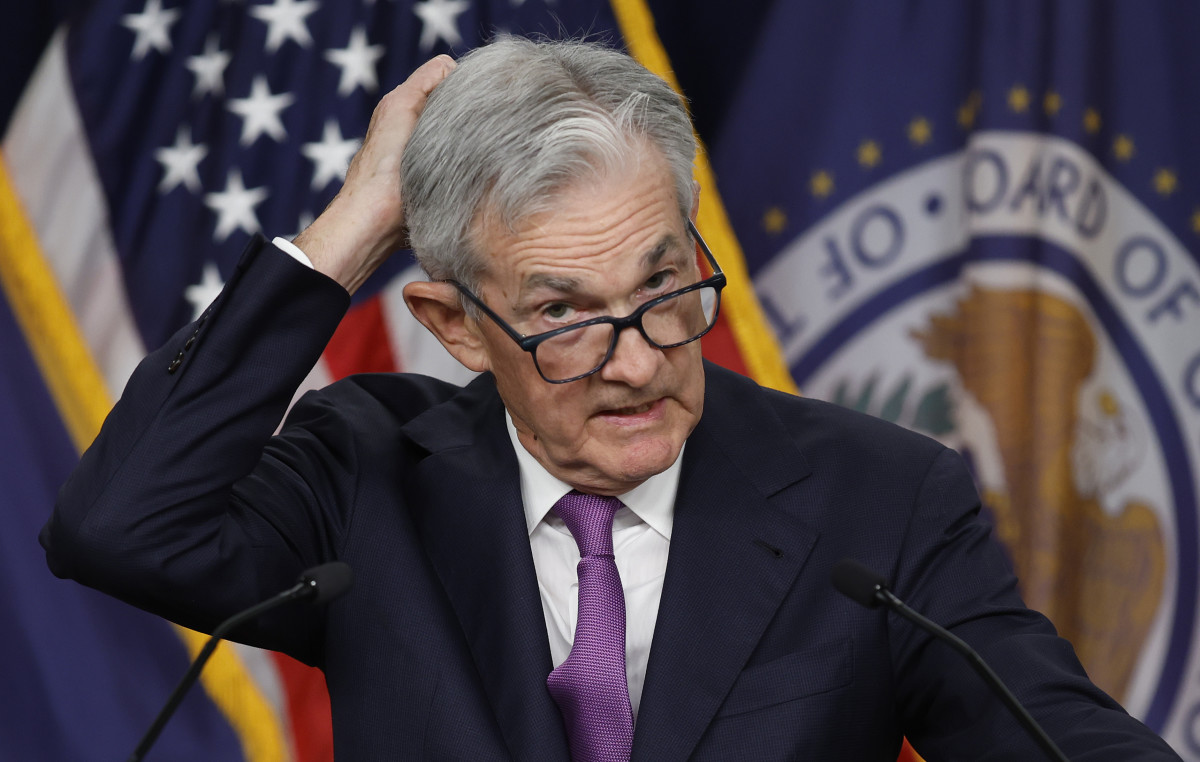
Investors enjoyed the last two days of the past week immensely thanks to the blowout earnings from chipmaker Nvidia.
But some of the unease that surrounded Nvidia (NVDA) before the company's earnings report remains in place.
Nvidia shares jumped 16.8% over Thursday and Friday. The company's market capitalization briefly topped $2 trillion on Friday, and it ended the week as the third most valuable U.S. stock, behind only Microsoft (MSFT) and (AAPL) .
The shares are up 59% so far in 2024 already, on top of a 239% gain in 2023.

Michael M. Santiago/Getty/TheStreet
Can Nvidia's glow be sustained?
The Standard & Poor's 500 Index finished the week up 1.7%. The Nasdaq-100 Index, in which Nvidia is a most influential component, was up 1.42%. The Nasdaq composite was up 1.4%. The Dow Jones industrials added 1.3%.
Nvidia's huge gain produced a huge wave of relief among stock investors, especially investors convinced that Nvidia and AI represent a paradigm shift in technology. Computing won't simply be users struggling to find data. AI will make all the data available and in forms that are most usable.
(That assumes a benign environment free from disinformation and other mischief.)
Related: Nvidia CEO Jensen Huang weighs in on huge AI opportunity
And Nvidia CEO Jensen Huang believes the next wave of investment into artificial intelligence will "open up a whole new world of applications not possible today."
At the same time, he said during the company's Wednesday earnings call that AI will create a market valued in the "hundreds of billions of dollars" yearly.
The Nvidia phenomenon is so big it has caused analysts to boost their estimates of the where the S&P 500 will end 2024. Goldman Sachs analyst think 5,200. UBS is going with 5,400. There have reports of 5,500 elsewhere.
Fundstrat's always bullish Tom Lee believes the stock market "is getting stronger because it is proving to be extremely resilient."
Maybe Lee is right. He called the stock market's end-of-year rally in 2023 before anyone else.
Still, markets do get ahead of themselves and fall back, often quickly, regularly and with bite. Bite as in a decline of at least 10% from top to bottom.
The S&P 500's decline from its January 2022 peak its October 2022 low was 25%.
The Fed is still watching
The euphoria also suggested that stocks can continue to rise, even if the hope-for rate cuts from the Federal Reserve aren't coming any time soon.
One reason: Indicators of markets' being overbought have not emerged. Yet. Nvidia's relative strength index was just below 74. A reading of 75 is typically a signal a stock or index is overbought.
When the year began, investors were positively euphoric that the Fed was going to cut rates. There were market estimates the first cuts would come by March.
Alas, March is approaching, and the Fed's federal funds rate is still at 5.25% to 5.5%.
Moreover, speech after speech by Fed officials since the last Fed meeting ended on Jan. 31 has made it clear the Fed wants inflation to be close to 2% on a sustained basis. It's about 3%, depending on the report.
There have even been hints the Fed could boost rates to get the desired effect.
The Federal Funds rate is the level at which the central bank want member banks to trade overnight reserves. That rate is the foundation on which all U.S. interest rates are derived.
More on Nvidia and markets:
- S&P 500 record highs paper-over Fed risks and bond market signals
- Nvidia CEO Jensen Huang weighs in on huge AI opportunity
- Nvidia and the Glory of the AI Economy
At the end of this past week, the 10-year Treasury yield was at 4.25%, up 16% from Dec. 29. The 10-year yield is the base rate on which U.S. mortgage rates are built.
Mortgage rates are at or very near to 7%, with Mortgage Rate News' national estimate at 7.1% for a 30-year loan. The rate on a 30-year loan had been as low as 6.6% at the end December, according to Freddie Mac's weekly mortgage market survey.
The rate increases come as the spring home-buying season starts.
So, the question investors will be asking this week is this:
Does Nvidia's earnings report represent a paradigm shift strong enough that stocks can withstand the interest-rate pressure from the Fed?
Watch the PCE inflation report
There is one report this week that will bear directly on the question: The Personal Consumption Expenditures Price Index, or PCE, which is the Fed's preferred measure of inflation. Its goal is to measure prices that prices actually pay.
The next report comes on Thursday from the Bureau of Labor Statistics.
Fed officials apparently believe the report will show inflation dropping to 2.4% year over year, down from 2.6% in December.
It is the week's most important economic report, more than a report on new-home sales, due Monday, or pending home sales, due Thursday.
Investor fears will rise ahead of it.
The earnings ahead
There are some technology companies due to report, including:
- Salesforce Inc. (CRM) up 11.3% on the year; and Snowflake (SNOW) , up 15.3%. Both are due Wednesday.
- Cybersecurity company Zscaler (ZS) , up 6.22%. Due Thursday.
And then there are non-tech companies, including:
- Domino's Pizza (DPZ) , up 5.2% on the year, due Monday.
- Do-it-Yourself hardware retailer Lowe's (LOW) , up 4.5%. Due Tuesday.
- Department store operators Macy's (M) and Dillard's (DDS) , down 3.1% and up 6.6%. respectively. Both due Tuesday.
- Best Buy (BBY) , down 2.55%. Due Thursday.
- Anheuser-Busch Inbev (BUD) . down 1.6%. Due Thursday.
All are exposed straight up to consumer health and confidence, and managements of these companies will surely have something to say about what they're seeing and hearing.
Related: Veteran fund manager picks favorite stocks for 2024







